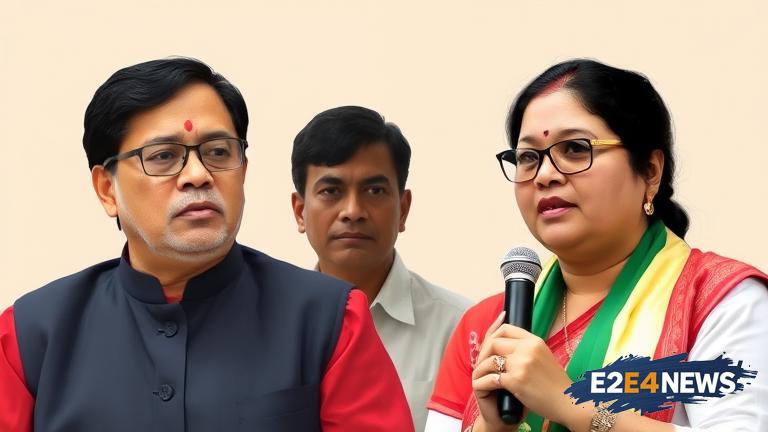The recent statement by Syeda Hameed, a member of the Planning Commission of India, has sparked a heated debate over the issue of Bangladeshi immigrants in Assam. Union Minister Kiren Rijiju has strongly criticized Hameed for her support of these immigrants, stating that it is unacceptable to back individuals who have entered the country illegally. Rijiju’s comments have been met with both praise and criticism, with some arguing that he is taking a strong stance against illegal immigration, while others claim that he is being insensitive to the plight of those seeking refuge. The issue of Bangladeshi immigrants in Assam is a complex one, with many arguing that it is a matter of national security and citizenship. The Assam Accord, signed in 1985, aimed to address the issue of illegal immigration in the state, but many argue that it has not been effectively implemented. The current controversy has highlighted the need for a comprehensive and effective immigration policy in India. The government has been working to update the National Register of Citizens (NRC) in Assam, which aims to identify and document all genuine Indian citizens in the state. However, the process has been met with challenges and controversies, including concerns over the exclusion of genuine citizens and the inclusion of illegal immigrants. The issue of Bangladeshi immigrants in Assam has also been linked to the broader debate over citizenship and immigration in India. The Citizenship Amendment Act (CAA), passed in 2019, aims to provide citizenship to certain minority groups from neighboring countries, including Bangladesh. However, the law has been met with widespread protests and criticism, with many arguing that it is discriminatory and unconstitutional. The controversy over Syeda Hameed’s statement has also highlighted the role of politicians and public figures in shaping the narrative around immigration and citizenship. Rijiju’s comments have been seen as a reflection of the government’s stance on the issue, while Hameed’s statement has been viewed as a challenge to this stance. The debate over Bangladeshi immigrants in Assam is likely to continue, with many arguing that it is a matter of great importance for the state and the country as a whole. The issue has significant implications for national security, citizenship, and the rule of law. It also raises important questions about the role of the government and public figures in shaping the narrative around immigration and citizenship. As the controversy continues to unfold, it is likely that we will see further statements and actions from politicians and public figures. The government will also need to address the challenges and controversies surrounding the NRC and the CAA, and work towards finding a comprehensive and effective solution to the issue of Bangladeshi immigrants in Assam. The people of Assam and the country as a whole will be watching closely as the situation develops. The international community will also be monitoring the situation, given the significant implications for regional stability and security. In conclusion, the controversy over Syeda Hameed’s statement and Kiren Rijiju’s response has highlighted the complex and contentious issue of Bangladeshi immigrants in Assam. The debate is likely to continue, with significant implications for national security, citizenship, and the rule of law. It is essential that the government and public figures approach the issue with sensitivity and responsibility, and work towards finding a comprehensive and effective solution.
